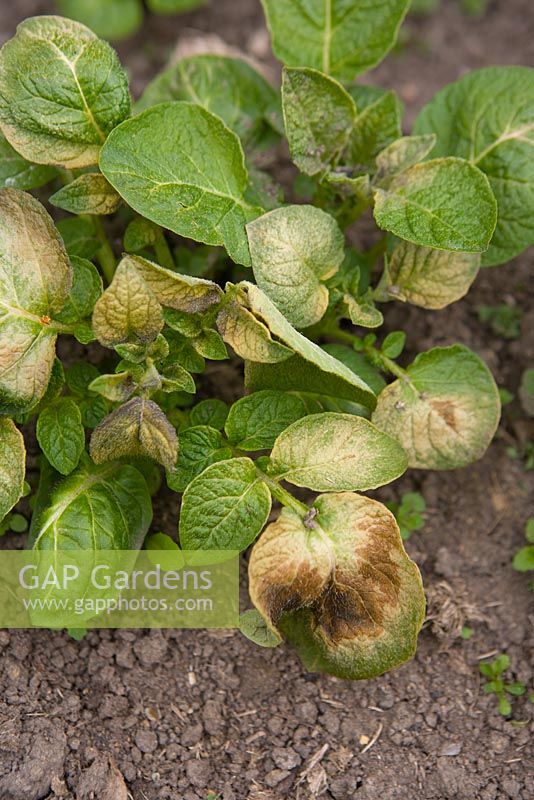
GAP Gardens Frost damage on early potatoes Image No 0221009
Potato plants can survive a light frost (temperatures of 28 to 32 degrees Fahrenheit), usually with little or no damage. Potato plants can also survive a hard frost (temperatures below 28 degrees Fahrenheit), especially with cold protection (such as cloches or row covers). In some cases, the cold from a hard frost may damage potato plant leaves and stems, killing the plant above ground.
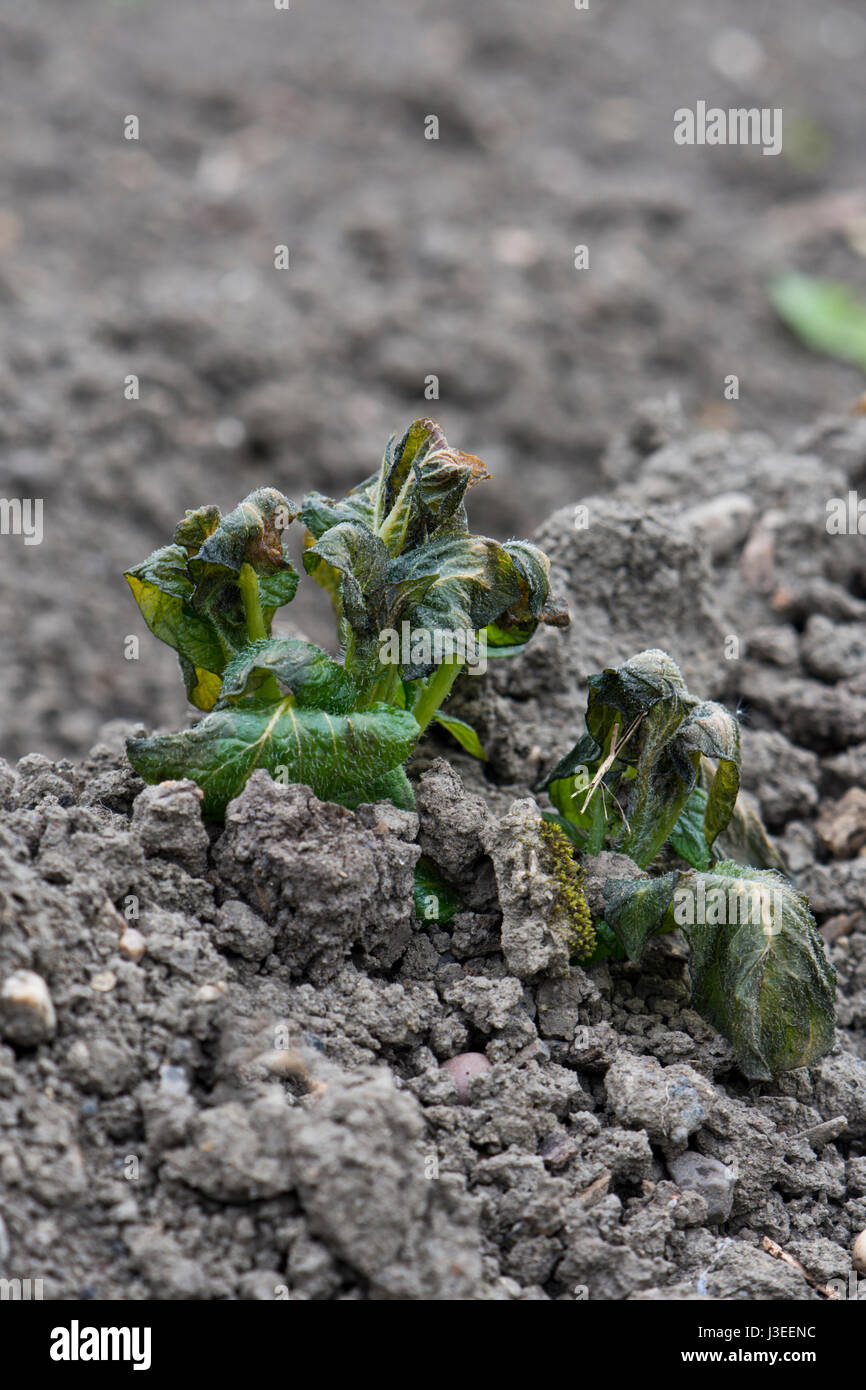
Early potato plants showing signs of frost damage Stock Photo
Yes, frost can kill potatoes. Potatoes are sensitive to cold temperatures and can easily be damaged by frost. The extent of the damage depends on how low the temperature drops and how long the plants are exposed to it. When a potato plant is hit by a light frost, it will usually suffer only minor damage. The leaves of the plant may turn black.

Potato Sprouts are Damaged by Frost Stock Photo Image of land
Potato shoots (stems) are sensitive to freezing temperatures. Symptoms of freeze damage may vary from blackening of the leaf margins (minor damage) to death of all aboveground growth (severe damage). Fortunately, severely damaged potatoes will send up new growth (shoots) within 10 to 14 days. There is no need to replant the potatoes.
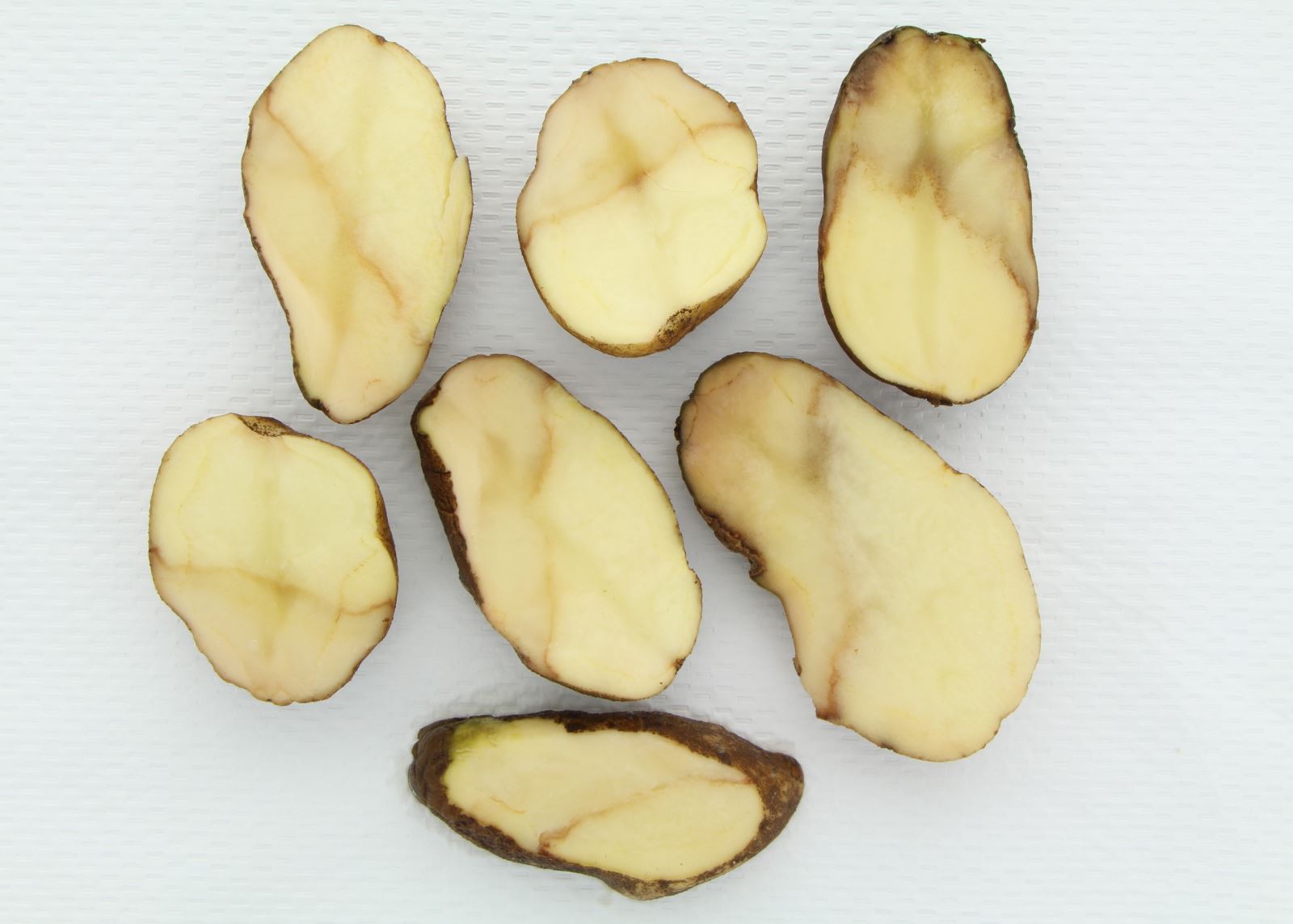
Out in the Cold Coping with frostdamaged potatoes Potato Grower Magazine
Temperatures between 29 and 32 F cause light frost, but temperatures from 25 to 28 F inflict serious damage to potatoes. In the fall, a hard freeze of 24 F or below ends the season, but a brief hard freeze in spring only kills potato plants to ground level. Elevation and ground slope influence the severity of frosts.
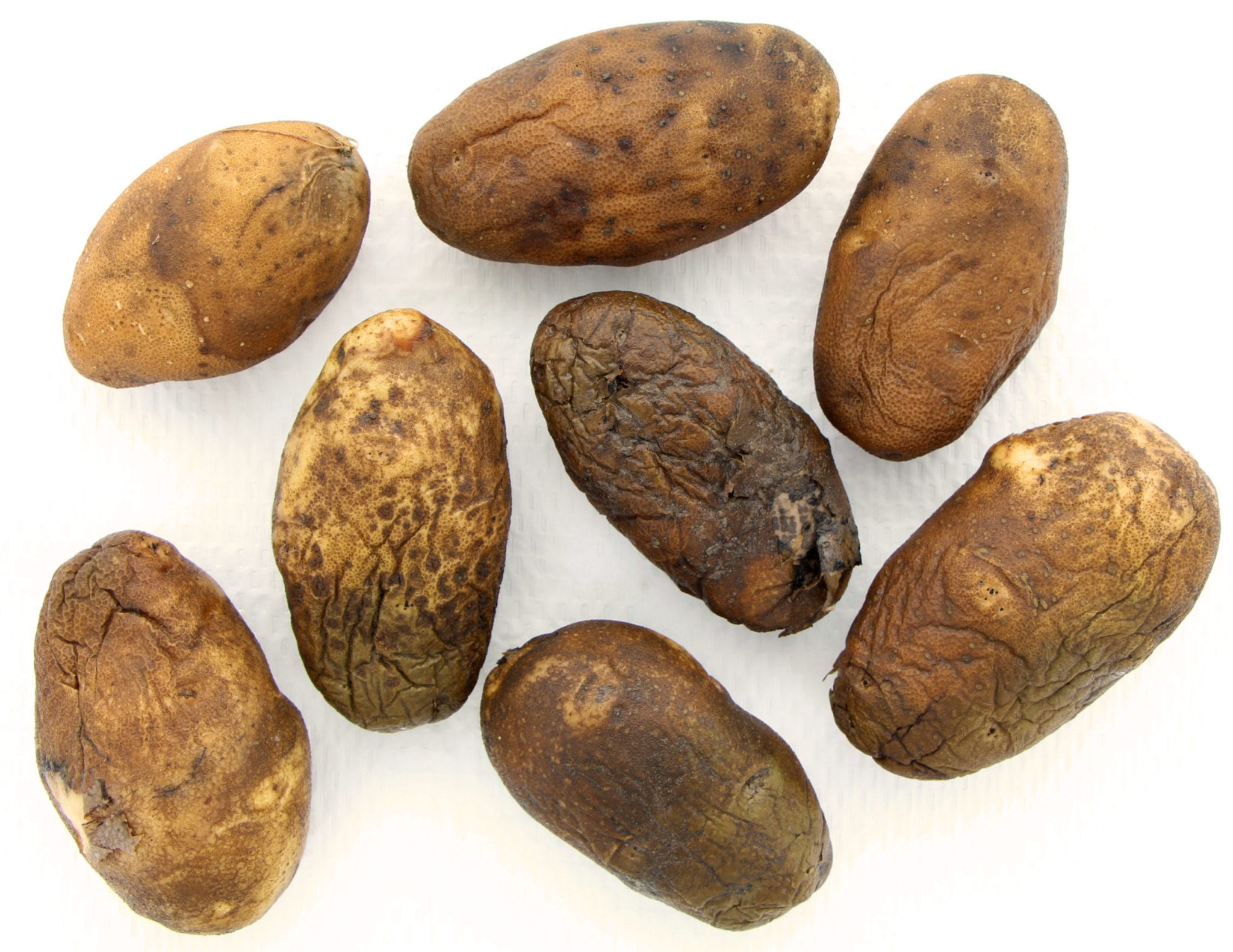
Frost Damaged Potatoes Wisconsin Potatoes
Frost damage occurs when tuber temperature drops below approximately 30 degrees Fahrenheit and tuber tissues freeze. Potatoes that are closer to the surface are more likely to experience freezing temperatures than those deeper in the soil. Green potatoes, which are at the soil surface, will undoubtedly be the first to suffer from frost damage.
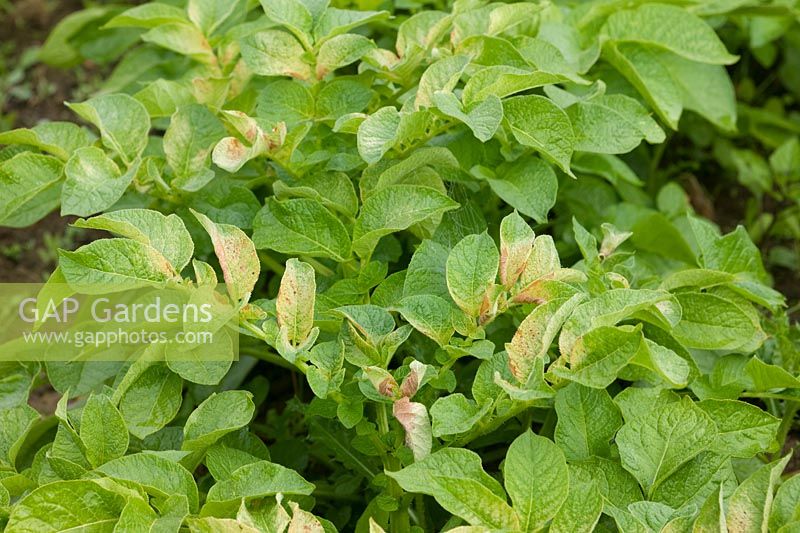
Frost damage on Pota... stock photo by FhF Greenmedia, Image 0084106
Identifying Freeze-Damaged Potatoes. Freeze or frost damage to potatoes (the tubers) can be hard to detect. Frost damage can occur when potato tubers are sticking out of the ground. The sun turns exposed potatoes green. Thus, any green potatoes which have experienced a frost event should be suspect. Potatoes close to the surface or in low areas.

Chookie's Back Yard A Walk in the Back Yard
From early April 2021, frost and freezing temperatures caused severe damage to crops including vineyards and fruit trees, oilseed rapes, potatoes and sugar beets across Europe.

Woodclyffe Allotment 20a Late posting Frost damage to Potatoes and
When it comes to frost, potatoes can handle a light frost (28-32°F) with little to no damage. However, a hard frost (below 28°F) can cause damage to the leaves and stems of the potato plant, and severe frost can kill the entire plant. If your potato plants have suffered frost damage, don't panic. Potatoes are resilient and can often send up.

Woodclyffe Allotment 20a Late posting Frost damage to Potatoes and
Here are a few more fall frost damage prevention tips: Water the soil thoroughly before frost. Water holds heat better than dry soil, protecting roots and warming air near the soil. However, avoid soaking the ground, as this can lead to the water freezing within the soil and damaging the roots.

Frost damage on the potatoes YouTube
Therefore, you shouldn't leave it on for a long time. Frost cloth is a short-term solution. If the temps are only cold at night, then you can cover your potatoes in the evening and uncover them in the morning once it's warmer. I wouldn't leave frost cloth on plants for longer than a day. If the temps get cold and stay that way, it's.
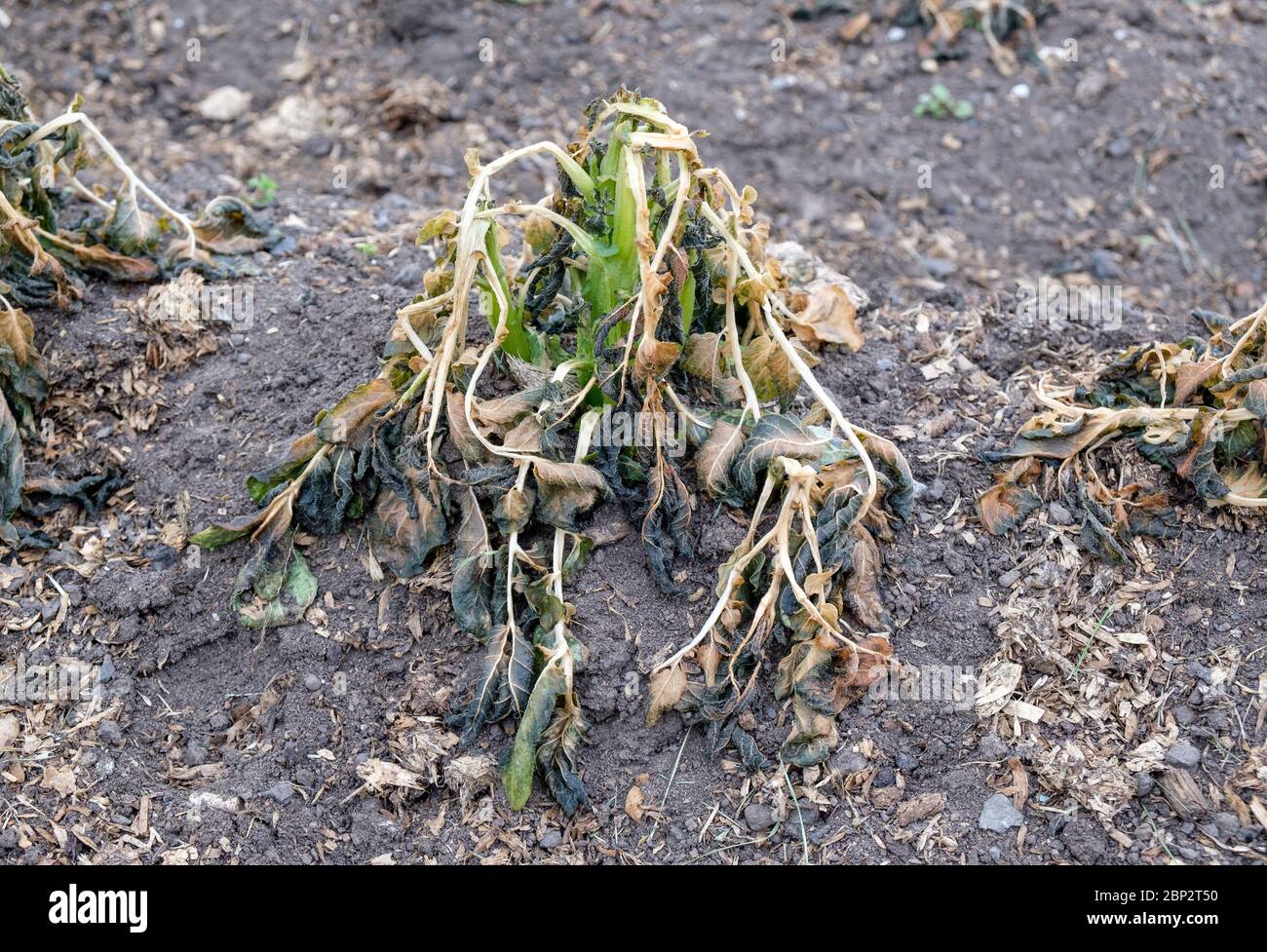
Frost damaged potato plants on a UK allotment in May Stock Photo Alamy
Potatoes can handle frost if they are mature and not exposed to prolonged periods below 28°F (−2°C). However, immature potatoes can be damaged easily by low temperatures. To protect them from frost, you should harvest before the first freeze or cover your potato plants with heavy blankets or multiple layers of mulch.

Gourmet Gardening Growing potatoes frost and other dangers
Will frost hurt potatoes? This is a question that many people ask, especially those who are growing their own potatoes. Frost can be very harmful to plants, and it is important to know how it affects…
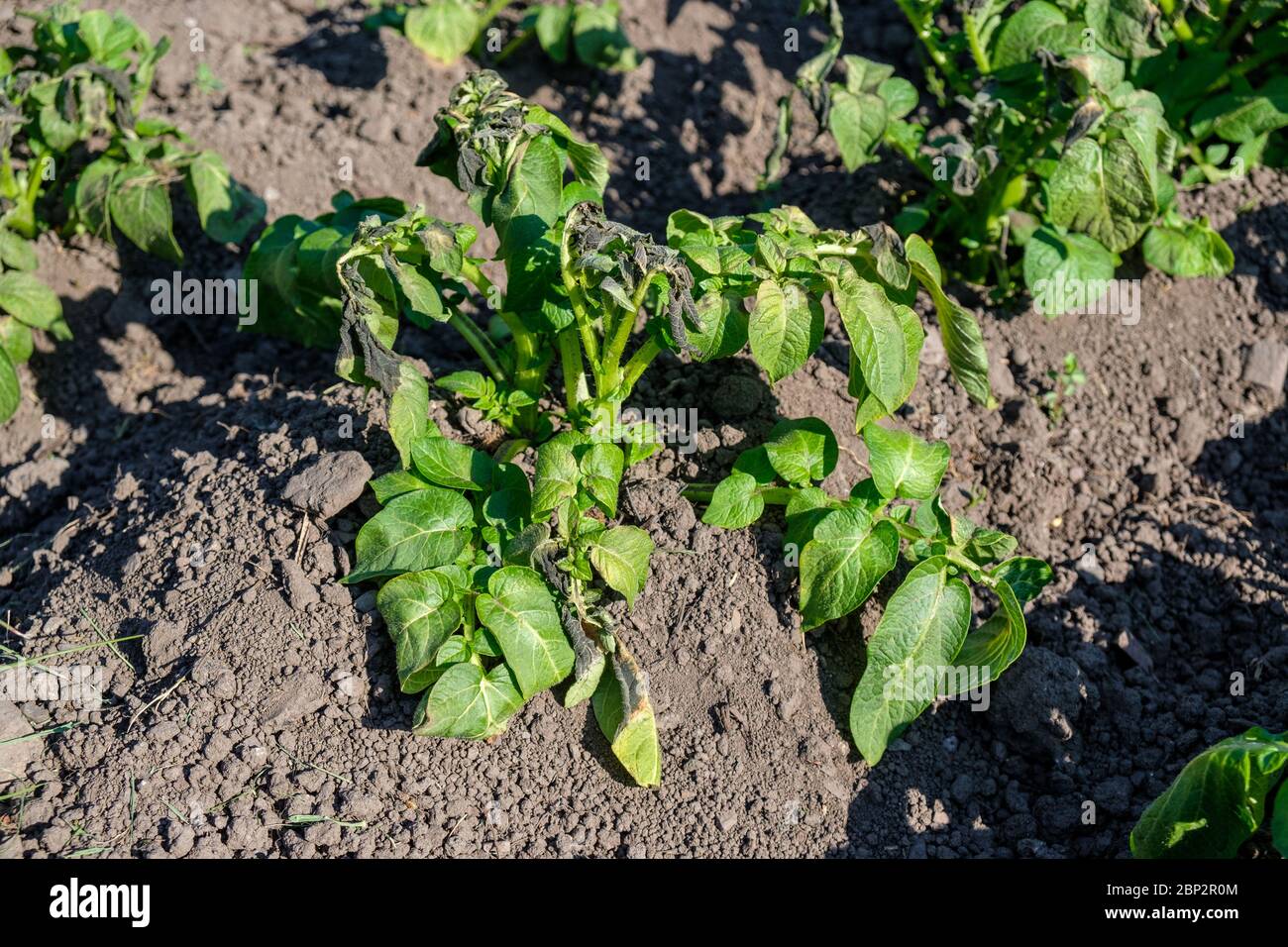
Frost damage potato hires stock photography and images Alamy
Frost damage. Potato plants can be susceptible to damage from frost either as a result of planting the crop out too early, or climate throwing up unexpected late frosts. Any damage can be caused when temperatures drop below 30˚F and young potato plants and shoots are very sensitive to frosts. The signs of frost damage are leaf margins going.
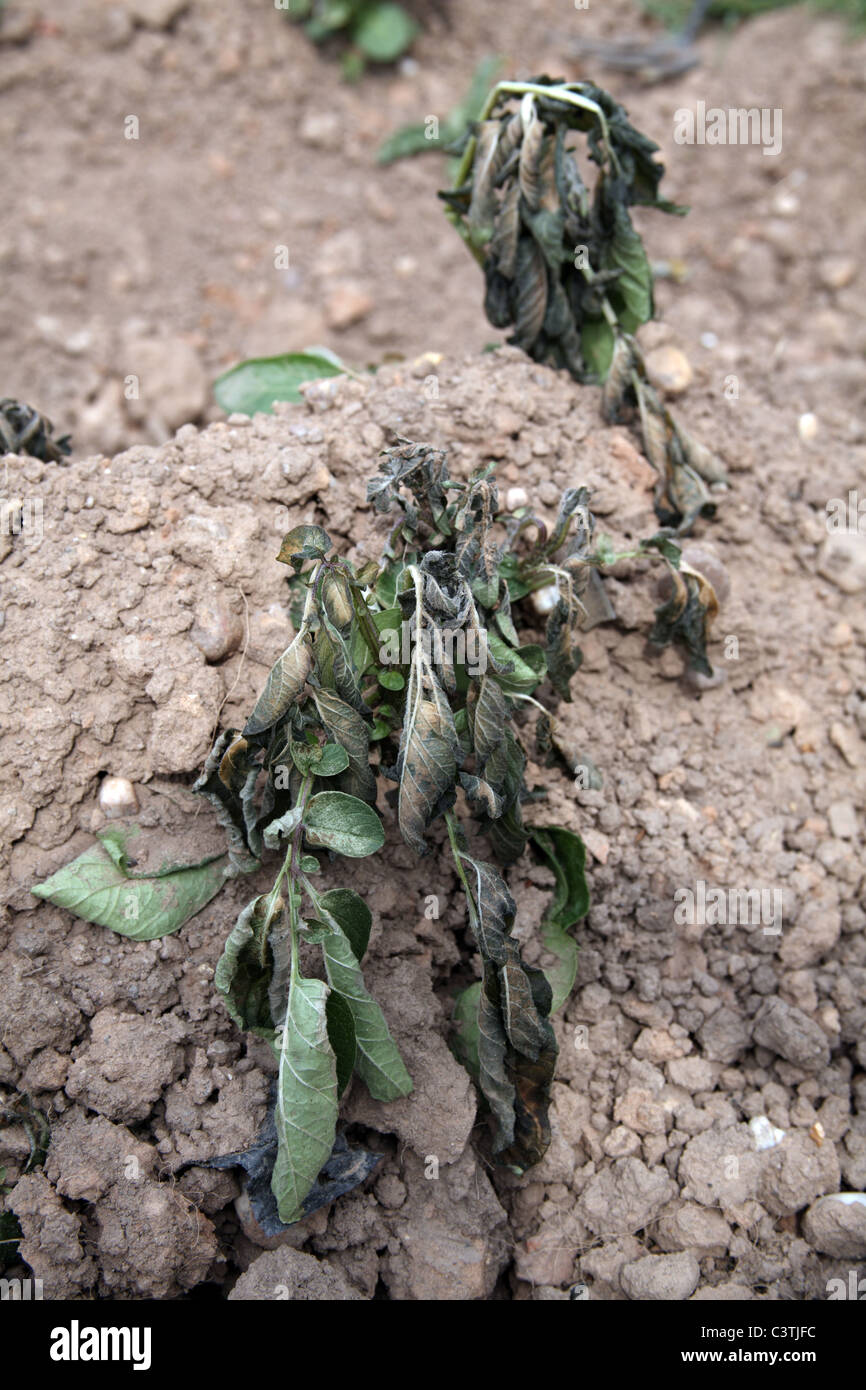
Frost damage potato hires stock photography and images Alamy
Potato plants can recover from frost damage. Potato plants can experience frost to the point of their stems turning black and dying, and they will continue to produce new stems. It only takes them about 10-14 days to have new shoots growing after ones have been killed by frost. They do not even need to be replanted for these new shoots to grow.

Potato Sprouts are Damaged by Frost Stock Image Image of background
It's worth noting that potatoes will likely suffer minor stem and leaf damage when exposed to light frost, while a hard frost will kill the stems and leaves above the ground. Light frost is defined as temperatures between 29 to 32 degrees F, or 1.6 to 0 degrees C, and a hard frost is defined as temperatures between 25 to 28 degrees F, or.
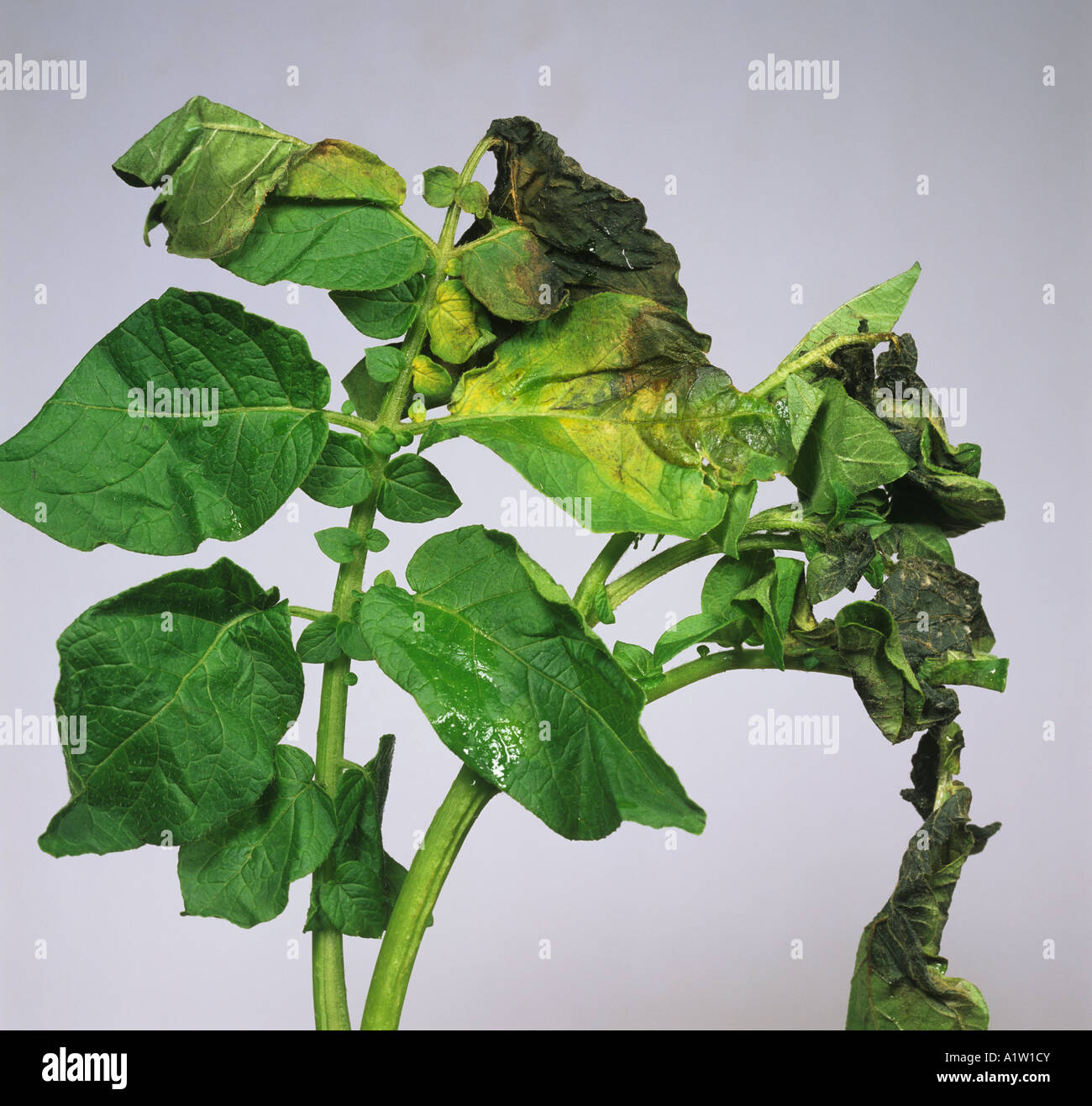
Frost damage to potato foliage Stock Photo Alamy
Regarding potatoes, frost will usually only damage the plant's leaves. The potato itself is underground and protected from cold temperatures. However, the potato itself can be damaged if there is a severe enough frost. This damage is typically seen in early-season potatoes that have not had a chance to fully mature. Later-season potatoes are.